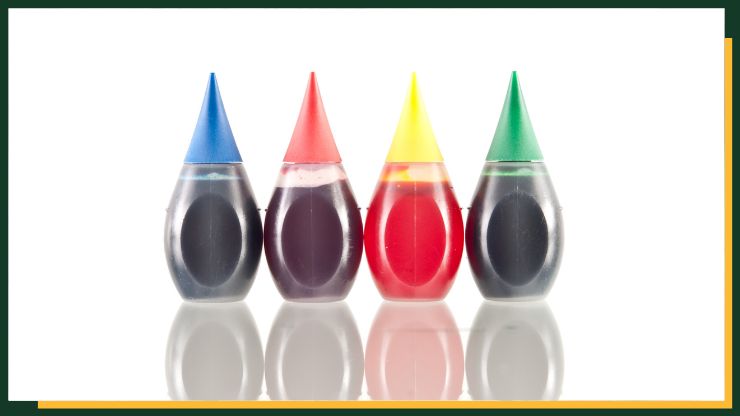Should I Avoid Artificial Food Coloring – Artificial food coloring, ubiquitous in today’s processed foods, raises critical questions about its impact on our health and well-being. These synthetic color additives are used to enhance the visual appeal of products, from candies and beverages to baked goods and even savory items.
However, growing concerns surround their safety and potential health risks. This debate revolves around the question: “Should I avoid artificial food coloring?” To answer this question, we must explore both the advantages and disadvantages of steering clear of these additives.
While health-conscious consumers may lean toward eliminating artificial colorants from their diets, doing so is not without consequences, including limitations on food choices and potential economic repercussions.
This essay delves into the pros and cons of avoiding artificial food coloring, examines the regulatory framework governing these additives, and ultimately aims to empower individuals to make informed decisions about their dietary preferences and consumption.
Table of Contents
ToggleDefinition of artificial food coloring
Artificial food coloring refers to synthetic substances added to food and beverages to impart color, enhance their visual appeal, and create an attractive appearance.
These color additives are typically chemical compounds created in laboratories and are used in various food products, ranging from candies and desserts to processed snacks and beverages.
Artificial food coloring serves to make food items more visually appealing, but concerns have arisen regarding their safety and potential health risks. These substances are employed to imitate natural colors, extend product shelf life, and maintain consistent appearance, and they are identified on food labels by specific color codes or names.
Don't just scroll, subscribe!
BuzzTrail's unique web-stories are the cure for boredom you've been waiting for.
The safety and desirability of artificial food coloring have become subjects of debate and scrutiny in recent years.
Also, Read – Should We Worry About Food Additives
Pros of Avoiding Artificial Food Coloring

Avoiding artificial food coloring can offer several potential benefits, primarily related to health and overall well-being. Some of the pros of avoiding artificial food coloring include:
- Reduced Risk of Hyperactivity: Research has suggested a link between artificial food coloring, particularly certain synthetic dyes like Red 40 and Yellow 5, and increased hyperactivity in children. Avoiding these additives may lead to improved behavior and concentration in sensitive individuals, especially children.
- Minimized Allergic Reactions: Some individuals are sensitive or allergic to artificial food coloring, which can lead to various symptoms, including hives, itching, and gastrointestinal discomfort. Avoiding these additives can help prevent such adverse reactions.
- Lower Cancer Concerns: Although the evidence is not definitive, some studies have raised concerns about the carcinogenic potential of certain artificial food colors. Avoiding these additives may reduce the risk of exposure to potentially harmful substances.
- Fewer Health Risks: Artificial food coloring is a product of chemical synthesis, and long-term consumption of these additives raises questions about potential health risks. By avoiding them, individuals can reduce their exposure to these chemicals and the associated health concerns.
- Promotes Natural Alternatives: Avoiding artificial food coloring encourages the use of natural colorants derived from sources like fruits, vegetables, and spices. These natural alternatives can provide health benefits and may contain antioxidants and other nutritional properties.
- Better Control Over Diet: Eliminating artificial food coloring requires individuals to be more conscious of their food choices and read ingredient labels. This heightened awareness can lead to a healthier and more balanced diet overall.
- Improved Transparency: Avoiding artificial food coloring promotes transparency in food labeling and encourages manufacturers to use natural ingredients. This can result in clearer and more honest communication with consumers.
- Enhanced Dietary Choices: By avoiding artificial food coloring, individuals may discover a wider range of unprocessed or minimally processed foods that are inherently colorful and offer a variety of health benefits.
Cons of Avoiding Artificial Food Coloring

While avoiding artificial food coloring can have several benefits, it also comes with certain drawbacks and challenges. Some of the cons of avoiding artificial food coloring include:
- Limited Food Options: Avoiding artificial food coloring can significantly restrict the variety of processed and packaged foods available, as many of these products rely on these additives for their visual appeal. This limitation may make it more challenging to find colored versions of certain foods.
- Increased Cost of Production: Using natural food colorants or avoiding artificial food coloring altogether can raise the production costs for food manufacturers. This increase in costs may potentially lead to higher prices for consumers.
- Impact on Food Industry Profitability: The food industry relies on artificial food coloring to create visually appealing products and maintain profitability. Eliminating these colorants may impact the industry’s economic viability and potentially lead to job losses in the sector.
- Aesthetics and Preferences: Artificial food coloring plays a crucial role in the visual aesthetics of many dishes and products. Avoiding these colorants may alter the appearance of food, potentially affecting consumer preferences and food choices.
- Impact on Traditional and Cultural Recipes: Traditional and cultural recipes often use artificial food coloring to achieve specific colors and visual effects. Avoiding these colorants may alter the authenticity of such dishes and affect cultural culinary traditions.
- Potential for Mislabeling: The demand for “natural” or “free-from” products may lead to the mislabeling of foods as entirely free from artificial food coloring when some natural colorants are still used. This can create confusion for consumers seeking to avoid all synthetic additives.
- Difficulty in Identifying Natural Colorants: It can be challenging for consumers to discern between natural and artificial colorants on food labels, making it harder to make informed choices. Some natural colorants may also pose allergen risks for some individuals.
- Less Vibrant Colors: Natural food colorants may not provide the same intensity or vibrancy of colors as artificial additives. This could result in less visually appealing food products.
Also, Read – Delicious Seafood Dishes
Conclusion (Should I Avoid Artificial Food Coloring)
In conclusion, the decision to avoid artificial food coloring is a complex one, with both pros and cons. While eliminating these additives may reduce potential health risks and encourage healthier dietary choices, it also presents challenges, such as limited options and potential economic impacts.
Ultimately, individuals should make informed decisions, read labels, and prioritize their health while considering the broader implications for the food industry and cultural traditions. Striking a balance between safety, aesthetics, and personal preferences is key to navigating the world of artificial food coloring.
FAQs
What are artificial food colorings, and why are they used?
What are artificial food colorings, and why are they used?
Artificial food colorings are synthetic additives used to enhance the color and visual appeal of food products. They are employed to make food more attractive and appealing to consumers.
Are there health risks associated with artificial food colorings?
Are there health risks associated with artificial food colorings?
Some studies suggest potential health risks, such as links to hyperactivity in children and concerns about carcinogenicity. However, the evidence is not definitive.
What are the advantages of avoiding artificial food coloring?
What are the advantages of avoiding artificial food coloring?
Avoiding artificial food coloring can reduce the risk of allergic reactions, potential hyperactivity, and long-term health concerns. It also promotes the use of natural, healthier alternatives.

